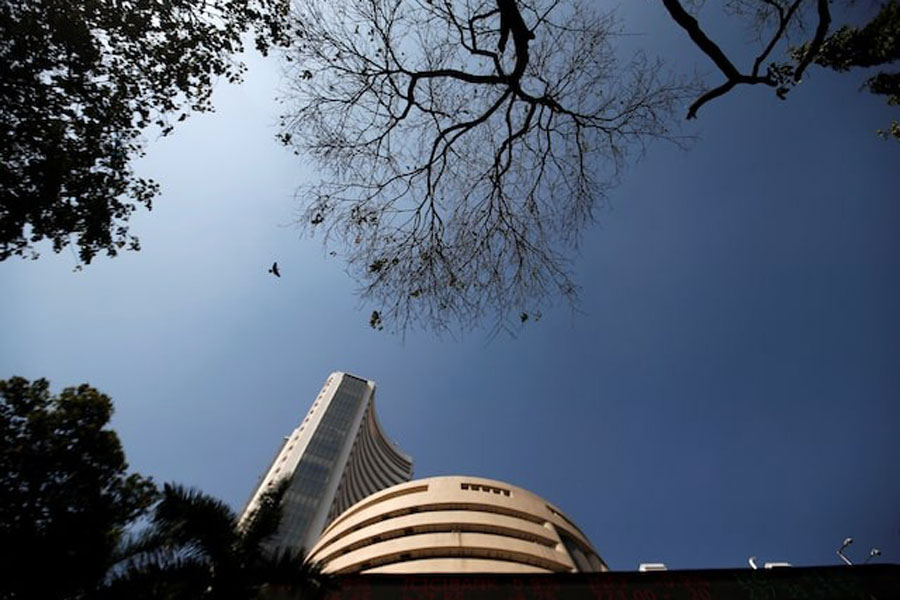
Published :
Updated :

India's benchmark indexes closed lower on Monday, extending their losing streak to a fifth straight session, as concerns over slowing growth in the US and persistent selling by foreign investors rattled domestic investors.
The Nifty 50 (.NSEI) fell 1.06 per cent to 22,553.35, while the BSE Sensex (.BSESN) lost 1.14 per cent to 74,454.41, their lowest levels in nearly eight months.
Domestic equities have been under selling pressure for most of February. The blue-chip Nifty 50 has fallen in 15 out of 17 trading sessions, losing over 4 per cent, on consistent foreign outflows, uncertainty about US tariff policies, and concerns over slowing domestic growth.
The session's drop came on the back of data on Friday that showed US business activity tumbled in February, pressuring emerging markets such as India, which has companies earning a significant amount of revenue from clients in the US
Ten of the 13 major sectors fell on the day, with heavyweight financials (.NIFTYFIN) and information technology (.NIFTYIT) falling 0.8 per cent and 2.7 per cent, respectively, which analysts said was due to a sell-off from foreign portfolio investors (FPI) with substantial exposure to these sectors.
The two indexes combined accounted for nearly two-thirds of the Nifty 50's losses on the day.
The excitement around China has further intensified the FPI sell-off, two fund managers said.
"China is getting a lot of attention due to attractive valuations and excitement around their tech sector," said Anand Vardarajan, business head at Tata Asset Management.
The broader and more domestically focussed mid-cap (.NIFMDCP100) and small-cap (.NIFSMCP100) indexes also fell 0.9 per cent and 1 per cent, respectively.
The indexes are down 18 per cent and 21 per cent, respectively, from their record-high levels on concerns over costlier valuations and weak earnings.
Bucking the trend, auto (.NIFTYAUTO) stocks rose 0.2 per cent, following a sharp fall in the previous week on looming tariff worries.
Glenmark Pharma (GLEN.NS) advanced 1.8 per cent after settling antitrust and consumer protection lawsuits related to a generic cholesterol drug.


 For all latest news, follow The Financial Express Google News channel.
For all latest news, follow The Financial Express Google News channel.